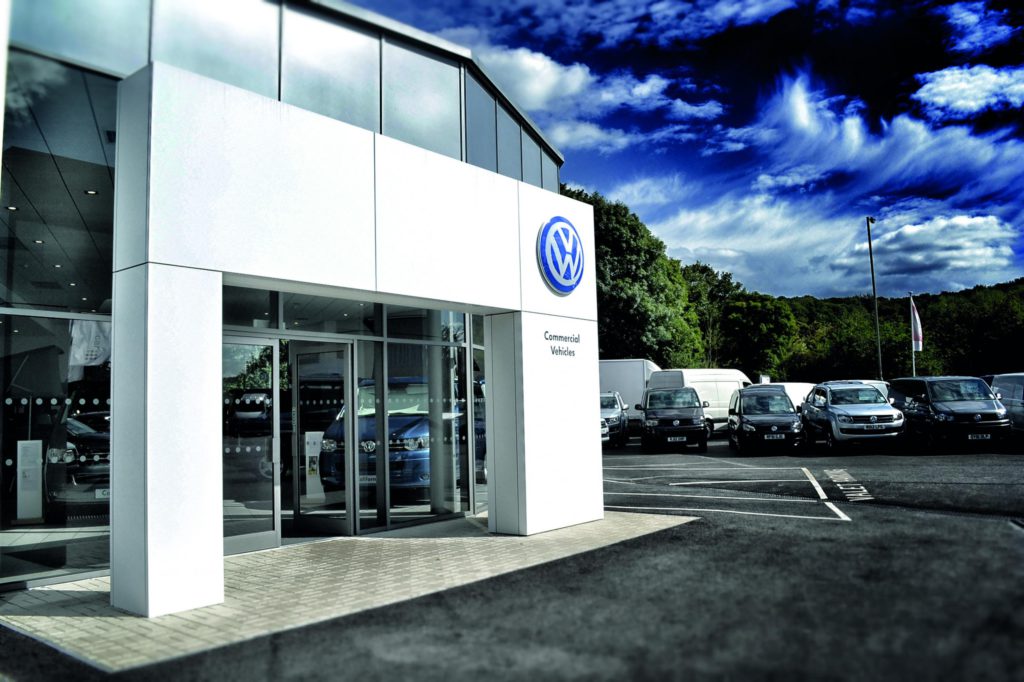Volkswagen continues with investment in digital and sharing infrastructure
28 August 2018

28 August 2018
Germany’s Volkswagen Group (VW) has mapped out details of its transformation from a manufacturer of vehicles to a provider of transportation services.
The manufacturer has unveiled a car-sharing service and promised a number of digital acquisitions as part of a €3.5 billion push into the future of mobility. The plan will start in Berlin, where the manufacturer will put 2,000 full-electric vehicles on the road by the second quarter of 2019 under the We Share label, competing with the merged DriveNow and Car2Go offering of Daimler and BMW.
′We will be a device and software company,’ Michael Jost, the VW brand’s strategy chief, said at a Berlin press conference introducing the car-sharing program. ′To deal with this development, we need to reinvent the automobile.’
Vehicle manufacturers have to push into new areas to cope with technologies and a changing ownership landscape that threatens the traditional market. However, VW has lagged behind its German rivals in the car-sharing market, with BMW and Daimler able to begin partnerships with car hire firms, before buying them out and merging their operations. The launch of We Share with such a large number of vehicles, however, highlights VW’s determination.
The We banner will be used for a package of mobile applications that VW customers can access with a single sign-on and that will be available for both conventional autos as well as the company’s new electric cars. Services will include electronic payment for parking, in-car package delivery, fuel-price tracking and localised deals from retailers. The project has a goal of generating 1 billion euros in annual revenue by 2025.
If VW rolls out the We system across the group as planned, it will add more than 10 million users each year, creating a network that no other single automaker can match. The digital push is ′like a mega-start-up,’ with growth expected to accelerate once the first phase of development is completed in seven years, Stackmann said. ′We want to get to the point where the car knows what you want.’
Digital services
Michael Jost, Chief Strategy Officer of the Volkswagen Brand and Head of Group Strategy Product, emphasized that software and the associated services would make a significant contribution to differentiation in the automobile industry in future. According to Jost, ′to deal with this development, we need to reinvent the automobile in some ways.’
That includes a redesigned, much simpler vehicle IT architecture, which will celebrate its premiere in the I.D. family of electric models from 2020. This IT architecture dispenses with a large number of separate control units that run on manufacturer-specific software – today, there are as many as 70 such units in a vehicle. Instead, vehicle intelligence will be concentrated in just a few computers with a unified programming language. In future the software will come from one source – the customer will experience services based on the ′vw.OS’ automotive operating system. As Jost explained, ′separating the hardware from the software lays the groundwork for continuous updates and upgrades.’ Furthermore, this means climbing to the next level on the road to autonomous driving.
The company says that 2020 will be a turning point for the brand. While today, some 1.5 million vehicles with no online access can already connect with the Internet thanks to the ′Volkswagen Connect’ retrofit solution, 2020 is the year when Volkswagen begins connecting its entire fleet. Each year, over five million new vehicles will then become part of the Internet of Things.